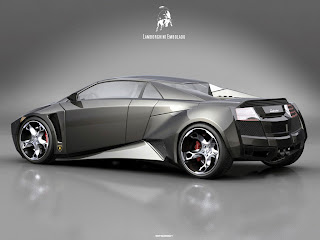If you study people as they shop, you quickly perceive that the economists’ model of human behavior—in which rational actors calculate costs and benefits doesn’t explain the crucial choices. (Why do some people fall in love with Jaguars but not Corvettes?) Nor does Thorstein Veblen’s model, in which consumers are involved in a status race to keep up with the Joneses. (Do you really think that’s how you select your purchases? And if you don’t, what makes you think everyone else is more shallow and status-crazed than you are? Furthermore, in a decentralizing world, which Joneses are you supposed to keep up with, anyway?
The key to consumption is not calculation or emulation, it’s aspiration. Shopping, at least for non-necessities, a form of daydreaming. People wander through stores browsing for dream kindling. They are looking for things that inspire them to tell fantasy tales about themselves. That apple corer at Crate and Barrel can help you make those pies you’ve always savored; you can imagine the aromas and the smiles when you bring them out for dessert. That drill from Sears can help you build a utility closet; you can imagine the organized garage and the satisfaction of having everything in its place. That necklace is just what your wife would love; you can imagine the joy she will feel when you give it to her.
Often the pleasure that shoppers get from anticipating an object is greater than the pleasure they get from owning it. Once an item ceases to fire their imagination—when it no longer inspires a story about some brighter future—then they lose interest in it, and their imagination goes off in search of new and exciting things to dream about and buy. (Kids can go through this process with dispiriting speed, as anybody can tell you on a Christmas afternoon.)
People might browse through things they cannot possibly afford, simply because the pleasure they get from daydreaming in a luxury showroom compensates for the frustration of not being able to buy anything. The shoppers may play a distinctly modern game: They know that Gatorade won’t make them jocks, that Nike sneakers won’t make them jump like Mike. At the same time, they enjoy the fantasies and are happy to play along. Sometimes shopping sets off a dream or a sensation that is actually revealing and true. In Virginia Woolf’s short story “The New Dress,” a woman tries on a dress:
Suffused with light, she sprang into existence. Rid of cares and wrinkles, what she had dreamed of herself was there—a beautiful woman. Just for a second…there looked at her, framed in the scrolloping mahogany, a gray-white, mysteriously smiling, charming girl, the core of herself, the soul of herself; and it was not true vanity only, not only self-love that made her think it good, tender and true.
Woolf beautifully captured the way the woman’s vision has both the quality of hallucination—it exists for a moment, the woman’s cares and wrinkles vanish—but also the quality of truth, because in this moment, the woman sees her truest and best self, which does exist deep down.
Nor is it entirely benign.
The magazine stand, the department store, and the mall are all arenas for fantasy. The more upscale you go the more imaginatively evocative the stores become--Cartier is less utilitarian than Dollar General. Lamborghini is more fantasy-oriented than Ford. People with money flock toward things that don’t only serve a purpose but stir the heart. They are drawn by their imagination to move and improve and chase their fantasy visions of their own private heaven. The cash register is a gateway to paradise.



No comments:
Post a Comment